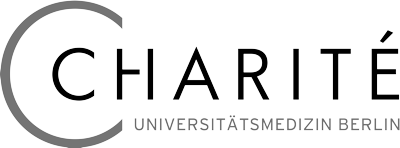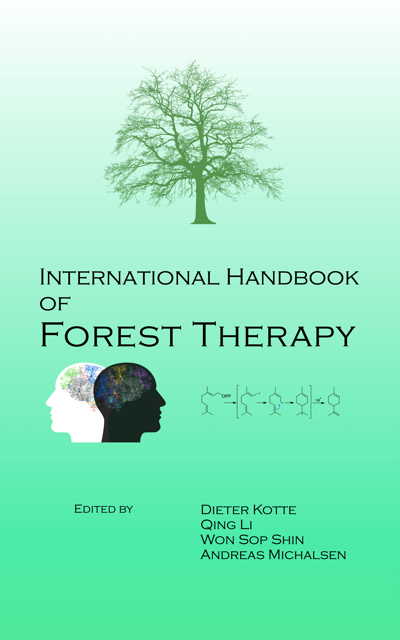Research
INFTA is actively engaged in an ongoing dialogue with research institutes and organizations nationally and internationally.
It is essential that more research is undertaken in the area of Forest Therapy. We are still, for example, in the infant stages of learning about the positive effects which phytoncides – the bioactive molecules emitted by trees in forests – have on our metabolism.
We also need to develop a better understanding about the recently discovered sociobiological effects, such as ‘biophilia‘ and how the genetically determined ‘nature-connectedness‘ affects our mind and body functions when being deprived of it.
Take a closer look at the research projects and collaborations INFTA is involved in. You may also like to read more in the latest publication on Forest Therapy:
- Kotte, D., Li, Q, Shin, W.S. & Michalsen, A. (eds.) (2019). International Handbook of Forest Therapy. Newcastle upon Tyne, UK; Cambridge Scholars Publishing (in print).

INFTA is involved in a range of national and international research projects. As one initial key project, INFTA has developed the International Core Curriculum of Forest Therapy (ICCFT). It constitutes the curricular framework for the training of Forest Therapy Guides conforming to and setting the international standard. This has been accomplished in 2017 through national and international collaboration of 120+ experts from over 20 countries.

Since 2018, INFTA has been invited repeatedly to assist a range of top-level research and policy institutions in the Peoples Republic of China with regards to fostering and developing Forest Therapy. INFTA feels privileged and honored to assist the Chinese Society of Forestry, represented by its Chairman, Mr. Zhao Shucong, and its affiliated member, the Chinese Society of Forest Therapy, it their endeavours. INFTA liaises directly with Mr. Liu Lijun, President of the Chinese Society of Forest Therapy, and an outspoken advocate for Forest Therapy as a Public health practice. In this context, INFTA appreciates the ongoing assistance – particularly with regards to translations between Chinese/Mandarin and English – of Prof. Ye Bing, Deputy Director of the Academy of Forestry.


In Germany, INFTA supports a new and innovative research project funded by the Department of Health and Age Care in Bavaria. The key research question is to find out how Forest Therapy can help reduce the time of rehabilitation for geriatric patients who underwent hospitalization and surgery. In this project, INFTA advises the management of the Klinik Wartenberg, one of the oldest and most reputed medical rehabilitation clinics in Germany at which the pilot study is carried out.
Feel free to read and download interesting research papers and informative background material about Forest Therapy, Shinrin-yoku and mindful walking from around the world at our references page.
Here you can read and download relevant national and international references related to Forest Therapy, Shinrin-yoku, the effects of phytoncides, biophilia and green space as well as related topics. Please note that for reading and printing pdf-files you will need Adobe Acrobat™ or a pdf-reader.
Browse through the extensive list of publications and select the category/country you are interested in. Then simply click the respective link and the document will automatically download or you are referred to the scientific journal where you can download the publication. Enjoy!

| Title | Category | Country | Action |
|---|---|---|---|
|
|
Forest Therapy, Nature-based Therapy, Prevention | Italy | Open |
|
|
Nature-based Therapy, Phytoncides, Public Health, Therapy | Iran | Open |
|
|
Nature-based Therapy, Phytoncides | Italy | Open |
|
|
Forest Therapy, Nature-based Therapy | USA | Open |
|
|
Phytoncides, Prevention, Public Health | Turkey | Open |
|
|
Nature-based Therapy, Phytoncides | Turkey | Open |
|
|
Nature-based Therapy, Phytoncides, Therapy | India | Open |
|
|
Nature-based Therapy, Phytoncides | Turkey | Open |
|
|
Forest Therapy | China | Open |
|
|
Forest Therapy, Public Health | Italy | Open |
|
|
Nature-based Therapy, Phytoncides, Public Health, Therapy | India | Open |
|
|
Forest Therapy, Mental Health, Nature-based Therapy, Prevention, Therapy | Taiwan | Open |
|
|
Forest Therapy, Mental Health, Prevention, Public Health, Therapy | South Korea | Open |
|
|
Forest Therapy, Mental Health, Therapy | South Korea | Open |
|
|
Forest Therapy, Mental Health, Prevention, Public Health | Germany | Open |
|
|
Phytoncides | India | Open |
|
|
Forest Therapy, Mental Health, Prevention, Public Health | South Korea | Open |
|
|
Nature-based Therapy, Phytoncides, Public Health, Therapy | Iran | Open |
|
|
Nature-based Therapy, Phytoncides, Public Health, Therapy | Egypt | Open |
|
|
Forest Therapy, Mental Health, Prevention, Public Health, Therapy | Japan | Open |
|
|
Forest Therapy, Public Health | Germany | Open |
|
|
Nature-based Therapy, Phytoncides | Turkey | Open |
|
|
Mental Health, Phytoncides, Prevention, Therapy | Malaysia | Open |
|
|
Nature-based Therapy, Phytoncides | India | Open |
|
|
Nature-based Therapy, Phytoncides | Taiwan | Open |
|
|
Forest Therapy, Prevention, Public Health | South Korea | Open |
|
|
Forest Therapy, Mental Health | Australia | Open |
|
|
Forest Therapy, Nature-based Therapy | Canada | Open |
|
|
Forest Therapy, Mental Health, Therapy | USA | Open |
|
|
Forest Therapy, Mental Health, Prevention, Public Health, Therapy | Malaysia | Open |
|
|
Nature-based Therapy, Prevention, Public Health | Sweden | Open |
|
|
Forest Therapy, Nature-based Therapy | Austria | Open |
|
|
Nature-based Therapy, Prevention, Public Health | USA | Open |
|
|
Mental Health, Nature-based Therapy | Canada | Open |
|
|
Mental Health, Nature-based Therapy, Prevention, Public Health | USA | Open |
|
|
Public Health | USA | Open |
|
|
Nature-based Therapy | Germany | Open |
|
|
Phytoncides, Public Health, Therapy | India | Open |
|
|
Nature-based Therapy, Public Health | Australia | Open |
|
|
Forest Therapy, Nature-based Therapy, Public Health | Malaysia | Open |
|
|
Forest Therapy, Mental Health, Nature-based Therapy | Austria | Open |
|
|
Mental Health, Nature-based Therapy | China | Open |
|
|
Nature-based Therapy, Prevention | United Kingdom | Open |
|
|
Nature-based Therapy | Australia | Open |
|
|
Nature-based Therapy, Prevention, Public Health | Japan | Open |
|
|
Mental Health, Nature-based Therapy, Phytoncides, Therapy | USA | Open |
|
|
Nature-based Therapy, Prevention, Public Health | Sweden | Open |
|
|
Forest Therapy, Prevention, Public Health, Therapy | Japan | Open |
|
|
Forest Therapy, Mental Health, Nature-based Therapy, Prevention | Finland | Open |
|
|
Forest Therapy, Nature-based Therapy, Prevention, Public Health, Therapy | Japan | Open |
|
|
Nature-based Therapy, Public Health | Canada | Open |
|
|
Phytoncides, Prevention, Public Health, Therapy | India | Open |
|
|
Forest Therapy, Nature-based Therapy, Prevention, Public Health, Therapy | Japan | Open |
|
|
Mental Health, Nature-based Therapy, Prevention | Finland | Open |
|
|
Nature-based Therapy, Phytoncides, Public Health, Therapy | Egypt | Open |
|
|
Mental Health, Nature-based Therapy | Australia | Open |
|
|
Forest Therapy, Nature-based Therapy, Public Health | Finland | Open |
|
|
Nature-based Therapy, Phytoncides | Egypt, Turkey | Open |
|
|
Mental Health, Nature-based Therapy, Phytoncides, Therapy | Egypt | Open |
|
|
Forest Therapy, Mental Health | China | Open |
|
|
Nature-based Therapy, Prevention, Public Health | Malaysia | Open |
|
|
Forest Therapy, Public Health | Germany | Open |
|
|
Forest Therapy, Nature-based Therapy, Prevention, Public Health | Taiwan | Open |
|
|
Nature-based Therapy, Prevention, Public Health | Germany | Open |
|
|
Forest Therapy, Mental Health, Public Health, Therapy | South Korea | Open |
|
|
Nature-based Therapy, Public Health | United Kingdom | Open |
|
|
Nature-based Therapy, Phytoncides, Prevention, Public Health, Therapy | Iran | Open |
|
|
Forest Therapy, Mental Health | Taiwan | Open |
|
|
Forest Therapy, Nature-based Therapy | China | Open |
|
|
Forest Therapy, Nature-based Therapy | USA | Open |
|
|
Nature-based Therapy, Phytoncides, Public Health, Therapy | Turkey | Open |
|
|
Forest Therapy, Nature-based Therapy | China | Open |
|
|
Nature-based Therapy, Phytoncides, Therapy | Iran | Open |
|
|
Nature-based Therapy, Public Health | United Kingdom | Open |
|
|
Nature-based Therapy | United Kingdom | Open |
|
|
Mental Health, Nature-based Therapy, Therapy | United Kingdom | Open |
|
|
Nature-based Therapy, Public Health | Sweden | Open |
|
|
Nature-based Therapy, Prevention | Austria | Open |
| No data found | |||

The International Handbook of Forest Therapy
This handbook defines the scientific domain of Forest Therapy as an innovative, evidence-based and timely Public health approach. More than 50 authors from around the world are brought together to offer their expertise and insights about Forest Therapy from a variety of research perspectives.
The theoretical discussion of the effects related to the biophilia hypothesis presented here is complemented by research results compiled across the last three decades in the fields of medicine, psychology and biochemistry. The book also highlights the latest developments with regards to Forest Therapy in a number of different countries, ranging from China, Japan and South Korea to Australia, Germany and Norway.
The handbook constitutes a major milestone in research in this field. It sets the baseline for Forest Therapy to be implemented worldwide as a powerful and financially prudent Public health practice.
